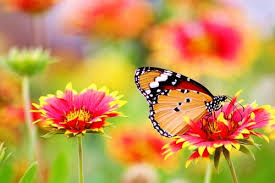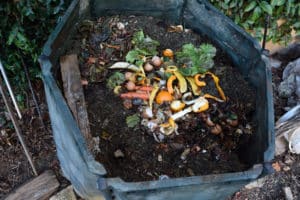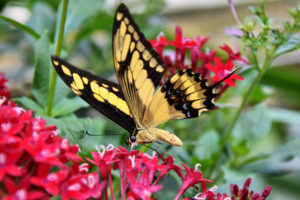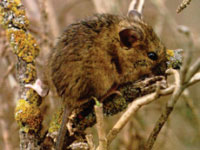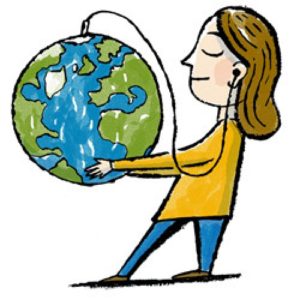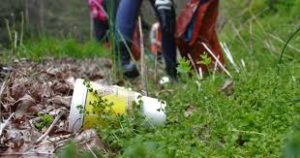Blog
10 Best Ways to Celebrate Earth Day from Home
As Kermit the Frog says, “It’s not easy being green.” While he meant being a green frog, we know that it is also difficult to be environmentally “green”. Humans are meant to be the stewards of the Earth, looking after the plants and animals, rivers, streams, oceans, and the land. What we do makes a difference. We’ll start off with a few day-of games, and then dive in to some of the best ways to have some fun and be a good steward of our planet.
5 Day-of Warm-ups: It’s All Fun and Games
- If you live in the San Francisco Bay Area and like to find plants and animals, try finding this wildlife in your backyard! SF Bay Area Backyard Bingo Card
- Find a rare species or detect a new invasive species in the Most Wanted List. SF Most Wanted Species List
- Do you like to explore, look under rocks, and do scavenger hunts? Find as many of these plants and animals as you can in your neighborhood. This is meant to be easy, kid/family friendly and includes things that people could find anywhere in California. California Backyard/Neighborhood Scavenger Hunt Bingo Board
- Do you like a scavenger hunt challenge? Here are some native California species that you can look for during City Nature Challenge and play BINGO at the same time! California Native Species Bingo Board
- Join the native California species BINGO game on iNaturalist and play with others in California! iNat project
Donate to an Earth-friendly organization
Want to put some money to work for the Earth? Not sure where your money will help most? One way to make a choice for a donation is to think about what is most engaging for you – animals, trees, oceans, rivers, mountains, beaches, etc. Once you decide what area you want to help, look for an organization that fills that need. Another consideration is whether you want to help locally, nationwide or worldwide. There is no wrong answer here. Go with what feels best to you. Whatever organization you choose, make sure your chosen nonprofit is in good standing. Kids like to help too! How can you get them engaged?
Participate in the City Nature Challenge!
Find wildlife or plants in your home, yard or neighborhood! Help scientists document various species! The organizers for the City Nature Challenge state, “…we want to embrace the healing power of nature and encourage the collaborative aspect of the CNC.” It’s easy to participate! Take a photo of a plant or animal. Share your photo and answer a few questions on the iNaturalist website or app. Your participation helps to identify species which scientists can use to determine the health of plants and animals in different regions. All these cities are participating around the world! Use this education toolkit to help you get started. Where will you and your family look for plants and animals? What do you think you’ll find?
Learn to Compost at Home!
What is compost? Why is it important to the health of our planet? From the EPA website, “Compost is organic material that can be added to soil to help plants grow. Food scraps and yard waste together currently make up more than 28 percent of what we throw away, and should be composted instead. Making compost keeps these materials out of landfills where they take up space and release methane, a potent greenhouse gas.” Here are some tips for backyard composting. Check out how CuriOdyssey is composting in our community and watch a helpful video. How can you begin composting at home?
Learn about native plants and their importance
We are very fortunate at CuriOdyssey to have an educator who is very invested in native plants and helping the animals that benefit from native plants. She is also active in removing invasive species from the San Francisco Estuary, which then leads to a healthy eco-system for native birds, mammals, and insects. If you are ready to get started, try these ten easy plants for the San Francisco Bay Area in your garden. Once you have the plants, it will be exciting to see what other creatures come to visit!
Learn about an endangered species and how to help them
According to a report by Conservation Lands Network the [San Francisco] Bay Area has 97 endangered or threatened animal species of all different types; mammals, birds, invertebrates, fish, reptiles, amphibians, and insects. There are several reasons for threats to animals including introduction of non-native animals and plants to an area and global climate change. How can you help? Be mindful by planting native species in your garden. If you are an animal lover, reconsider getting an exotic pet or if you can no longer care for an exotic pet – take it to an animal shelter or find a new home. Finally, come up with ways to reduce your carbon footprint. Be an endangered species champion!
Listen to a talk by an environmental activist
We live in a digital world so there are many ways to become connected with people who are making a positive impact on the Earth. These 19 Youth Climate Activists are all on social media, here you’ll find Earth Day live events and activities, and search here to listen to podcasts about climate change. Get informed, come up with your own ideas, and get engaged!
Reduce trash in your home and clean up your neighborhood
There is a wealth of information about how to reduce trash in your home. Figure out which of these ideas will work best for your family. There are small ideas and big ideas that can make a world of difference. Once you’ve cleaned up your own home, how can you help in your neighborhood? One thing you could try is to create a citizen science nature map. This map will help you identify litter hotspots in your neighborhood and then you can make a plan to decrease the waste. If you are picking up trash, always wear gloves and collect trash in a pail or bag. Thank you for helping to clean up the planet!
Reduce, Reuse, Recycle!
Everything does not have to become trash. Besides reducing trash using a variety of methods, we can reuse items, or we can recycle. It takes time and some effort to get it right. The best thing we can do is reduce the amount of things that we buy and then, get creative in how to reduce, reuse, and recycle! Make it a family challenge – see if you can reduce your trash from one month to the next. It will be fun and you’ll help the environment.
Be entertained while being educated!
Sometimes it takes something entertaining to get the educational gears moving. You can watch movies, both documentaries and non-documentaries, or TV shows to expose yourself and your kids to new ideas. Watch with your kids so when they have questions, you can discuss as a family. Be ready for open and frank conversations. Develop plans to help the environment together!
Set Earth-friendly goals!
Step one: take some time with your family to develop SMART goals. These goals are specific, measurable, achievable, relevant, and time-bound. Step two: track the progress on your goal. Sometimes, just making the goal helps you move towards it. Sometimes, it takes more effort. Learn to make and KEEP your Earth-friendly goals. Your family can set up goals together and you can all have individual goals, that contribute to the family goals. Click here for some ideas to get you started. Remember to set a reward for reaching your goals at the end of the week, month, or year – make your reward fun and Earth-friendly!
It’s not easy being green! So, just remember, whatever positive actions you take will make a difference. You can become an advocate for the Earth! Big or small, take action now!
P.S. These are links for more resources through Cal Academy and the California Natural Resources Agency. You can also check out CuriOdyssey’s At-Home Science Center and follow us online #CuriOdyssey!
Join the CuriOdyssey Community
LOCATION
1651 Coyote Point Drive
San Mateo, CA 94401
Ohlone Land Acknowledgement
650-342-7755
[email protected]
CuriOdyssey is a 501(c)(3) nonprofit, Tax ID 94-1262434



